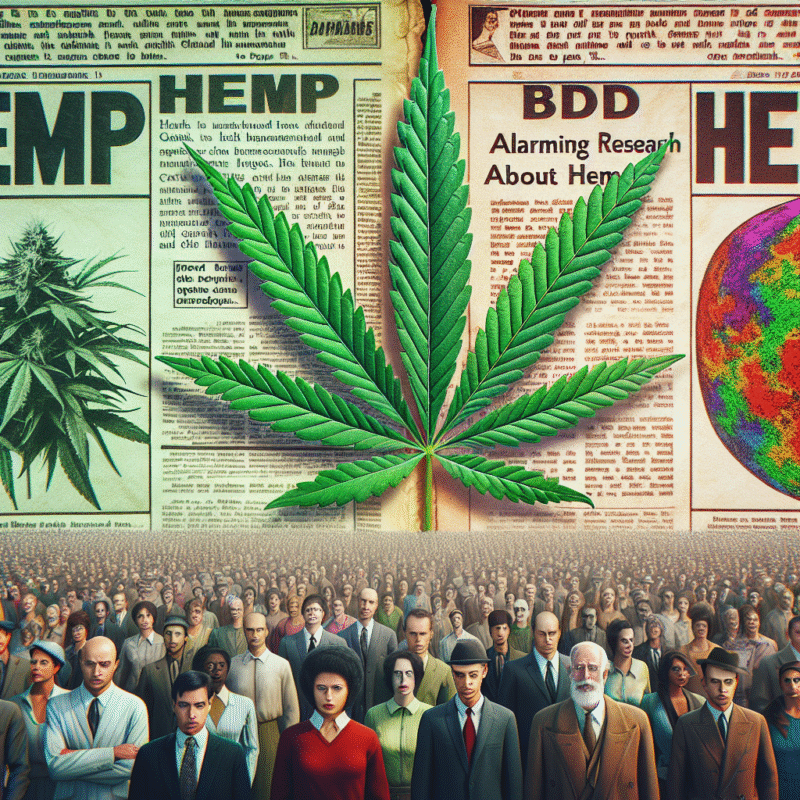Breaking the Stigma: How Hemp is Changing Perceptions in Society
In recent years, hemp has emerged as a transformative force, challenging long-held perceptions and stereotypes that have historically shadowed this versatile plant. Once associated primarily with its psychoactive cousin, marijuana, hemp is stepping into the limelight as a sustainable resource, offering a wealth of benefits for health, industry, and the environment.
A Historical Perspective
Hemp’s history dates back thousands of years; it was among the first plants cultivated by humans for its fiber. Ancient civilizations in China, Egypt, and Europe utilized hemp for various purposes, from textiles to ropes. However, the 20th century saw a significant shift in perception, driven largely by the rise of the marijuana stigma, resulting in its criminalization and relegation to the shadows of society.
The Shift Toward Acceptance
The recent relaxation of cannabis laws and the legalization of hemp farming in many parts of the world have sparked renewed interest in this plant. Legislative changes, particularly in the United States with the 2018 Farm Bill, have paved the way for hemp’s resurgence. This re-establishment has not only liberated the plant from outdated stigmas but has also spurred extensive research into its myriad applications.
Hemp in Health and Wellness
One of the most significant areas of impact is in health and wellness. Hemp-derived products, particularly CBD (cannabidiol), have gained massive popularity in wellness circles. Unlike THC (tetrahydrocannabinol), CBD does not produce psychoactive effects, making it appealing to a broader audience. Research has encouraged a growing acceptance of CBD for its potential benefits, including relief from anxiety, inflammation, and chronic pain.
The shift in public perception is bolstered by prominent endorsements from health professionals and organizations that are beginning to acknowledge the potential of hemp-derived products. This growing body of scientific support is critical in breaking down barriers and reassuring consumers about the safety and efficacy of hemp.
Environmental Sustainability
Beyond health, hemp is making headlines in sustainability. As a rapidly renewable resource, hemp requires less water and fewer pesticides compared to traditional crops. Its deep root system helps prevent soil erosion, and it can replenish nutrients in the soil, making it an excellent choice for crop rotation. Furthermore, hemp can be utilized in producing biodegradable plastics, textiles, and building materials, propelling industries toward greener practices.
As climate change concerns escalate, the environmental benefits of hemp are gaining attention. As more consumers seek sustainable choices, industries that incorporate hemp into their products are positioning themselves as eco-friendly alternatives, further normalizing hemp in everyday life.
Economic Opportunities
The revival of hemp also presents significant economic opportunities. Hemp cultivation can support rural economies by providing farmers with a diverse crop and stimulating local industries. The growth of hemp-based products has led to the creation of new jobs in farming, manufacturing, and retail sectors.
Moreover, sectors such as food, cosmetics, and construction are experiencing a boom in hemp-derived products, offering considerable market potential. As investments pour into the hemp industry, public perception is gradually shifting toward viewing hemp as a viable economic powerhouse.
Addressing Misconceptions
Despite its progress, hemp still faces enduring misconceptions. Many people struggle to distinguish between hemp and marijuana, often equating them due to their shared cannabis lineage. Educational initiatives that clarify the differences—such as the legal definition (hemp contains less than 0.3% THC)—are essential in dismantling these misunderstandings.
Moreover, promoting stories of successful hemp ventures and the diverse applications of hemp products—ranging from food and health supplements to textiles and biofuels—can help spark curiosity and acceptance in communities.
The Future of Hemp
As we look ahead, the future of hemp appears promising. Continued research, legislative support, and public education are crucial to transforming societal perceptions further. The narrative around hemp is shifting from one of stigma to one of possibility, encouraging broader acceptance and integration into mainstream culture.
In conclusion, hemp is redefining its place in society—moving from the shadows of prohibition to the forefront of innovation. By breaking old stigmas and fostering a deeper understanding of its benefits, hemp is not only changing perceptions but also contributing to a healthier, more sustainable, and economically vibrant future. As society embraces this versatile crop, the potential for positive change continues to grow, promising a new era of acceptance and innovation.

